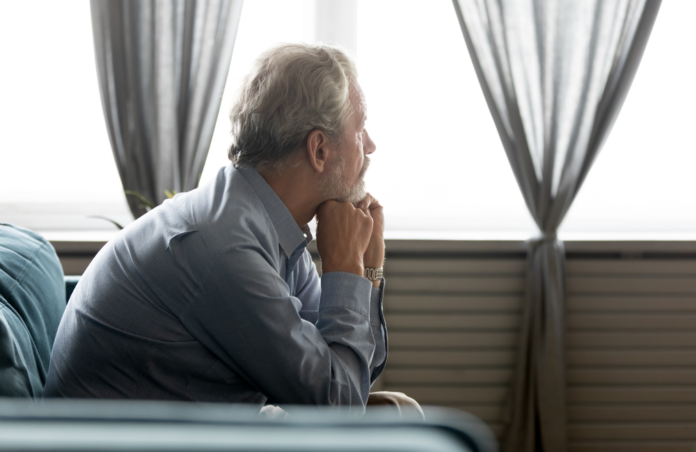
Bisexual men living with HIV in Australia reported greater levels of self-stigma, worse self-image and poorer emotional wellbeing compared to gay men. They also reported less social support and fewer connections to the LGBTQ community and to other people living with HIV. These men expressed feelings of social isolation and highlighted fears of rejection associated with their HIV diagnoses.
These findings were published by Dr Jennifer Power and colleagues at La Trobe University and published in AIDS and Behavior recently.
Men who have sex with men (MSM) comprise the majority of people living with HIV in Australia and made up over 60% of new cases in 2017. Most HIV-related research tends to group all MSM together and does not differentiate between gay and bisexual men. This means that the unique experiences of bisexual men living with HIV are often marginalised and incorporated under the broader MSM umbrella, even though they may have vastly different experiences when it comes to acceptance within the LGBTQ community, living with HIV and access to support and services.
Early on during the HIV epidemic, bisexual men were often portrayed by the Australian media as the ‘villains’ who transmitted HIV to women. Similarly, studies regarding HIV transmission risk reinforced the notion of bisexual men as being the link between gay men and the heterosexual world. This may have resulted in unique forms of stigma that differ to those experienced by gay men. Additionally, in LGBTQ spaces, bisexual men are a small minority, and a certain level of biphobia may be present. Thus, there may be few services specifically dedicated to the needs of bisexual men living with HIV.
Power and colleagues wanted to investigate the unique challenges that these men face, specifically related to stigma, social connectedness and mental health.
The study
Data for the study was taken from the 2015-2016 HIV Futures 8 survey, conducted with a sample of 872 adults living with HIV in Australia. This survey asked varied questions related to the participants’ lives, including physical and mental health, HIV stigma, social support and connections to the LGBTQ community. An open-text question regarding experiences of feeling guilty, shameful or fearful about HIV was also included.
The authors focused on a subset of 48 men who identified as bisexual (6%) and compared these responses to the cis and transgender men who identified as gay (681 men, 87% of the sample).
Differences between bisexual and gay men living with HIV
While there were no reported differences in terms of country of birth, highest level of education and relationship status, bisexual men were on average older than gay men (55 vs. 49 years old) and were more likely to report their annual income to be half the average Australian household income or less (AUD$30,000). Of those in a relationship, bisexual men were also much more likely to report that their primary partner was female.
Regarding health, the two groups did not significantly differ in terms of HIV-related areas (such as years living with HIV, use of treatment or viral load detectability). However, bisexual men were nearly three times more likely to report poorer general health, twice as likely to report poorer emotional wellbeing and were also significantly more likely to have used medication for a mental health condition in the previous six months. The men did not differ in terms of alcohol and tobacco use, but bisexual men were less likely to report recreational drug use than gay men.
In terms of social support and stigma, the two groups were similar in terms of reported resilience measures. However, bisexual men were four times more likely to report lower social support than gay men. They were also less likely to spend time with other people living with HIV. Interestingly, bisexual men were nearly four times more likely to report higher perceived levels of HIV-related stigma in all areas. These ranged from areas such as disclosure to concern about public attitudes.
As a result, higher stigma scores were associated with being bisexual, poorer emotional wellbeing, lower social support, lower LGBTQ connection and less time spent with people living with HIV.
While bisexual men did not specifically mention their bisexuality in the open-text responses, their answers highlighted a sense of loneliness, low self-worth and fear of rejection as a result of having HIV, and the challenges associated with disclosure.
“Since diagnosis, I have very rarely socialised. I very rarely leave my home.”
“I feel that no-one worthy will want me as a partner therefore I will be alone for the rest of my life. I am tired of being asked am I ‘clean’ by people who want casual sex, this straight away makes me feel like ‘damaged goods’.”
“Social and community connection remains a crucial and unmet need for bisexual men living with HIV.”
In one instance, a participant reported a relationship breakdown after disclosing his HIV status to a partner, affecting relationships with children and grandchildren and causing a great deal of distress.
“My wife left me … She told the two children and their partners without my knowledge and without my being there when they were told… One partner of a son is still having trouble coping with [my HIV status] and this is starting to interfere with [me] seeing my grandson”.
Some bisexual men also spoke about the need to be vigilant and guarded regarding their status, as they feared the consequences of HIV disclosure – especially in settings such as the workplace. This made them fearful about sharing their status with others. Presumably, being ‘outed’ regarding their HIV status could also lead to being outed about their sexuality.
“Everyone talks about their issues, but I feel worried to expose my feelings like normal people. Constant need to be aware of what I’m talking about.”
“I have felt fearful at work of having my HIV status disclosed without my consent. I have had this happen to me and then my role at work changed after being ’outed’ with weak excuses as to why.”
Conclusion
“It is notable that bisexual men in this survey reported poorer emotional wellbeing, less social connection and higher perceived levels of HIV-related stigma than gay men. This suggests that bisexual men living with HIV may have unique support needs that are not adequately addressed through existing programs, and that social and community connection remains a crucial and unmet need for bisexual men living with HIV,” the authors conclude. They suggest: “Mechanisms to increase social connection should be explored. This most likely includes dedicated initiatives run by and for bisexual people living with HIV given their unique experiences with respect to connecting with both the LGBTQ and HIV communities.”








